#eng translation
Text
[ENG translation] Joker Out: We won't screw up
A radio interview with Bojan Cvjetićanin and Kris Guštin on the radio station called Radio Koper, from 01.01.2024. The interviewer and author is Iztok Novak Easy. You can read the translation below or listen to the audio in Slovene from the source.
~
['Carpe Diem' starts playing and continues to play in the background]
Interviewer: Hello, Bojan.
Bojan: Hello, dear friend.
Interviewer: And Kris.
Kris: Hi. It's good to see you here.
Interviewer: Thank you. How would you describe the year that just ended in a few sentences?
Bojan: In a few sentences? Yes, a year that changed our lives significantly and brought us closer to what we imagined our musical dreams to be.
Interviewer: What about you, Kris?
Kris: We have been using the word turbulent all day, today. In fact, it makes sense in at least two ways, because it has actually been very turbulent for us. Mentally and physically. We have also taken so many flights where we have experienced more turbulence than ever before.
['Carpe Diem' gets louder for a few seconds]
Interviewer: Moving on with this year. Eurovision, all the travelling that came before it, Stožice, the tour that followed, the recording in between, and so on. What would you put first? I'm asking you, Kris.
Kris: Even though we went to Eurovision this year, the main event for me was still the concert in Stožice. After all, we announced it a year before the event, which means half a year before we really even started to deal with Eurovision. For us, the whole year was split into before Stožice and after Stožice. Everything we were doing before Stožice was kind of leading up to it, so, once it happened, at least for me, it completely changed the shape of the year. So I have to say Stožice maybe even more than Eurovision.
Interviewer: What would you, Bojan, point out as the most valuable or what are the most valuable new pieces of knowledge or insights that you have gained this year?
Bojan: I would say the most valuable insight is that life on tour really requires a healthy rhythm. I would say that we very quickly realised that there is no room for hedonism or egocentrism on tour, and that it is an extremely complex machine that stops very quickly if the pieces start to fall apart. So the realisation that we, as a group, know how to work but also that we have to do so in harmony is the most valuable thing, I think.
Interviewer: I recently read that Eurovision fans awarded those who made an impact at this year's contest. You have become the kings of charisma. More than 50% of the votes. What is your comment?
Bojan: I mean, it's... not the kings of charisma, it's just the way this competition is, these titles in the end are more of a joke than for real. But it's absolutely wonderful that our name was even included in the five or six categories that were awarded. The fact that we won proves that this year we have been very much present in this Eurovision bubble. I would say that we were a very strong link among all the representatives of the countries at Eurovision. So there were a lot of good vibes and a lot of fun surrounding us. So it was nice that the listeners and the viewers picked that and, like you said, out of 80000 votes, more than 40000 were for us, so that is such a nice start to the New Year. And also, I would say, a very nice end to this Eurovision story.
['Carpe Diem' gets louder and it ends]
Interviewer: Your European tour is behind you. From Helsinki to Belgrade. A lot of sold-out concerts. I read a review of the Belgrade concert in Dom Omladine. All praises, Joker Out. A sociological phenomenon. The new Beatlmania* and so on. How do you manage to stay normal?
(*Beatlemania was the fanaticism surrounding the English rock band the Beatles in the 1960s.)
['Ne bi smel' starts playing in the background]
Bojan: I stand by the fact that all five of us are extremely down-to-earth and normal guys to begin with. That we have a very nice and safe community, waiting for us at home, watching over us and supporting us. That is, of course, our families, our friends and our team. So I would dare to say that we don't have a lot of room to screw up, because there are enough people around us who can grab us and hold us and bring us back down to Earth in an instant. So we don't have this tendency to suddenly become total jerks, but we are who we are and the moment we come back from the stage to the backstage, the gig is over and there is only genuineness left. I mean, on stage we're really totally genuine too, but still. We're on stage and it's a show. So yeah, I would say that we don't allow ourselves and others don't allow us to change who we are.
['Ne bi smel' gets louder for a few seconds]
Interviewer: Kris, Helsinki, The Hague, Wroclaw, Madrid, Barcelona, as I said Zagreb, Belgrade, Novi Sad, Rijeka too. Which would you say was the most emotional?
Kris: So I'll say this: it's really hard to pick one concert or one place that was really the best. Personally, I will say that Amsterdam was the most emotional experience for me, because it was the first time my Dutch family attending a concert of ours. Because before that, ok, they watched us at Eurovision, but after that performance, it's hard to really understand what we do besides that. They know that I do music, but they never really understood what I do until they came to the concert and saw their fellow Dutchies singing in Slovene for the whole concert, while they had never learned one song or a few words of Slovene in their whole life. And they were all enthusiastic until the end and it was a real honour to perform for them.
Interviewer: What about you, Bojan?
Bojan: I have to say that it was extremely emotional, in terms of the fact that we were totally shocked, that people were singing in Slovene in countries you wouldn't think of. I mean, let's say that the further north we went, the more and more it blew us away. As for me personally, perhaps the most heartfelt was in the countries of the region, so to say, the countries of the former Yugoslavia.
Interviewer: Your version of Đurđevdan in Belgrade went viral on tiktok. Was it spontaneous?
Bojan: Yes, totally spontaneous. When we went off stage Jure was feeling unwell and couldn't go back on stage for the encore and I took the acoustic guitar because people were screaming for the encore, and when I came on stage, I said, "Which one are we going to do?" and some of the fans in the front screamed "Đurđevdan" and I said "C'mon". And Đurđevdan was the final encore song. And it turned out to be a great moment.
[an audio recording of 'Đurđevdan' from the concert plays]
Interviewer: Did you notice any particularity, perhaps a difference, between the British organisers, the Spanish, the Scandinavian and those from what you called our former country? Maybe how you were treated by the media?
['Vse kar vem' starts playing and it continues to play in the background]
Kris: If we just focus on the organiser. Before we started our tours abroad, I had never come into contact with organisers. Here, in Slovenia, we treat everything a little differently. Maybe in Slovenia you have such organisers at Kino Šiška* because they are used to a lot of foreign performers. But things are different and I have to say that we have been lucky that we have been less and less involved with them because we have had a bigger and more experienced team around us who have been trained for abroad from before. So, I would say that things are a little bit better abroad. Far from Slovenia being pure chaos and wild, I somehow felt safer and more confident when I was doing concerts abroad, in terms of the performance itself. As far as the media is concerned, of course in Slovenia we were one of the most talked about artists, so we got a lot of attention that we might not have received abroad. Abroad, we had Eurovision media, maybe some national television. So, as far as some commercial networks are concerned, we are still getting there. On the other hand, in the Balkans, all of a sudden it was "wow". All of a sudden the tabloids asked 'What's up with the girls, where are they, where's the party?' and things like that. It's a completely different scene than in Slovenia.
(*Kino Šiška has been the central Slovenian institution of the contemporary concert scene since 2009, complemented by activities in visual and performing arts.)
Interviewer: Do you have anything to add?
Bojan: Yes, I do. Like Kris said, when it comes to organising concerts, things tend to really... the biggest difference is that when you look at the plan and the timeline that you get before the concert, that timeline really makes sense and is accurate to the minute and it sticks to what is written. But I would say that in the Balkans, this is quite impartial, but in the Balkans we were really, I would say, treated like kings. In all aspects. As for the media... At least for me, it was the first time in the Balkans that a music journalist came and asked questions with 100% respect. At no point in the interview was there any hint of cynicism, which is practically in every interview here in Slovenia. Whenever there is some success or praise, there is a small 'but' in the next sentence. There is always something negative to point out, while someone who has a positive attitude also writes a really 100% positive article. And if someone is negative, they write it negatively. So that really really fascinated me. I have to say that the interviews in the Balkans this year were also heartwarming.
['Vse kar vem' plays louder for a few seconds]
Interviewer: Talking about positive things, have you ever had a negative experience? Maybe one... Have you ever had a hard time recently?
Bojan: Yes, absolutely. I'll say it like this, this year we gave our all, everything we had. We didn't have an ounce of energy left, that we could have saved just in case, but we went 800% with our heads through the wall. In every situation. And it left an impression on us, because we were tired and I was so tired that it started to show in certain stressful situations that we weren't used to before. For example, the stage was 1000% the safest place for me, but then by the end of summer, ['Padam' starts playing in the background] when I experienced a panic moment on the stage that then lasted for the whole concert, it left a mark on me and that stress and panic still lasts, for almost half a year from then. So, it's not a joke, when they say that you have to take time for yourself and slow down once in a while. But here we are, that moment has arrived, thank god. Next week we're going to London for two months, where us five are going to make music in peace. Well, in between we're going to fly to two concerts but almost two months in peace. So, yes, I'm very excited for that time.
['Padam' gets louder for a few seconds and continues to play in the background]
Interviewer: Maybe it's important in regards to this: when things start happening like in your case the task of choosing the people to surround yourself with, it's very hard. How do you manage situations like this? Where did you draw the line? How did you choose the people who help you? The people, like you say, who watch over you?
Kris: In the past it was always like this that we started working with people with whom we naturally developed a bond. With whom we have developed trust before we started the business collaboration or rather business relationship. And that basically functioned really well until Eurovision, then our presence suddenly broadened from Slovenia to the whole of Europe and the whole world, and here what we know how to do, and what the majority of people from Slovenia know, it's not enough to properly tackle the market. So we had to make a few quick decisions, we had to welcome a few people from abroad to our team that we might not have welcomed so quickly in Slovenia. But we said that this is the moment, when we have to trust certain people to help us. We established that trust in advance as much as it was possible. Now we have in our team, for example, people we got to know during Eurovision with whom we have already developed a relationship but we are still developing it and waiting. At the same time we had to say goodbye to certain people in Slovenia, even those who were a part of our team from the very start, because our situation is drastically changing, because our schedules no longer align, in regards to life, ambitions and business. So for me one of the hardest things this year was that we had to say goodbye to people who were with us from the start, because we're moving forward.
['Padam' gets louder for a few seconds]
Interviewer: In March and April you have a new concert tour. Before that, Bojan, you said there will be time for creating.
['Sunny Side of London' starts playing in the background]
Bojan: Yes, next year will be a little experimental from all aspects, so, not just the concert aspect but also from the creative aspect. We'll be creating music abroad for the first time. So, the next two months in London are devoted to writing, making the songs, rewiring our brains.
Interviewer: In English?
Bojan: In Slovene, English and Serbo-Croatian language. Maybe another one, but for now these three are planned. English will dominate for sure but all three languages will be on the album. In March and a little bit of April, we're going on this one month tour. Then we're going to a studio in Germany for one month, where we'll record the album. That is the studio where we recorded 'Carpe Diem' so we're already used to it. We're planning to put the March tour to good use with trying out what we will write and play in our rehearsal space in January and February. So the March tour will be the most playful tour until now, because at each concert we'll try out two, three songs from the new album, at the next concert we'll play another one. So each concert will be actually different and a different experience for the fans and for us. After the studio we are going on a festival tour that will probably also be quite extensive. Then we will return back home at the end of summer and slowly release the album in October, which means another tour for sure and then it's happy new year and merry Christmas and here we are.
['Sunny Side of London' gets louder for a few seconds and continues in the background]
Interviewer: Earlier I mentioned Finland, where you were already during the last tour. One of the concerts is already sold out, as far as I know, in Helsinki. Can you explain this phenomenon? Finland? Is this that story that developed from Eurovision?
Kris: Yes, for sure. I think Finland was the first country ever where we got a golden record and it was for Carpe Diem. We learned about that on tour, when we were in Finland. No one exactly knows the reason why Finland stands out the most. It's definitely the fact that they are big fans of Eurovision, so more of them came in contact with us. Besides that, we had a nice friendship, or rather, Bojan did, with their representative. That gave us additional exposure in this country. But there is clearly something with us and our music that resonates with their ethos and despite all the exposure they had something to hold on to, once they got to us.
Interviewer: You were talking about the golden record. If I mention a few numbers now. Your former PR representative, booking manager, I don't know what else he was responsible for, we're talking about Gregor, of course, he mentioned 45 million streams on Facebook. Now there are more, for sure. Your fee was raised 30 times and it's going up. In short, there are a lot of numbers. What does this bring?
Bojan: This brings a lot of things. Now, in the music business it's common that when you have a bigger fee you have to make a bigger and better production. In the end, it literally comes to proportionally the same fee you had in the beginning, but with a bigger show. In regards to that, our life absolutely hasn't changed. Maybe I could say that it could have if we had stayed in Slovenia... I can say that for sure. If we kept doing concerts in Slovenia we could get more out of it, in a financial sense. In regards to all the other aspects, in other words, how inspirational is it for a musician in how much it fills you, it's incomparable. We don't do music because of money, if we did we would probably either do a different kind of music or do it in a different way. But what drives us, is creating and that new faces in the crowd sing. Especially now, when we started going abroad, it's something incredible. To listen, to see the crowds queuing to come to your concert.
Interviewer: Can you also comment on my question?
Kris: Half of people will always resent you for changing and the other half for staying the same. No matter what you decide and because I personally know that a musician needs to grow in their career, so then I'd rather see that half of the people resent us for changing than for staying the same.
['Demoni' starts playing loudly for a few seconds]
Interviewer: Okay, our chat was recorded at the time that we on Radio Koper realised that Carpe Diem was the most played song in this past year. I told you earlier that the second one was 'Novi val', last year at this time, it was the most played song too. The song that now has an English version, with the great Elvis Costello in the main role. I still don't get it how you managed to pull that off.
Bojan: We don't get it either, honestly. Elvis Costello is someone who was musically connected with the band literally from the start. So, when we first drew the line under this shagadelic rock'n'roll and we called our music this made-up genre it coincided with Elvis Costello, who was acting and singing in the Austin Powers movie, where "shagadelic" came from. So it's an unbelievable common thread that came full circle in the end. Elvis has, in his own words, co-authored with very few people, Paul McCartney is one of them. So, when he told me that he co-signed this song with me, I wasn't really able to grasp that.
Interviewer: Okay. You are a part of the new wave. You're inviting us to the carneval. Generation of love and hope and so on. You are a part of some kind of a new wave that happened several years earlier, the so-called new wave 30 or 40 years ago. You know that there's this phrase that embodied musicians who had changed our story as well, and I dare to say that it was part of the reason why many things unraveled the way they did, for the better. I have a feeling, that you are also, please tell us for all five of you, a part of this new wave that wants things to lead in a better direction.
Kris: I definitely count on all five of us knowing and understanding and feeling that we are a part of the new wave and if I connect to the previous question about Elvis, I think he felt it too. Because this is the bond that we have with him, besides all the surface level things, shagadelic and I-don't-know what else. The bond we have with him is that we both started creating in a vacuum of new music and we made something out of it and I think he could feel it even without beeing present on the Slovene music scene. And if he could feel it, we have to trust ourselves that we are doing something right and we're leaving something meaningful behind us.
['New Wave' plays in the background]
Interviewer: Bojan.
Bojan: We are... the five of us, young people in 21st century, we grew up with the notion that from what we learned from books, everything will be better, all the mistakes have already been made and the world learned something, and now we can flourish. And unfortunately, it is becoming clearer by the day that not only have we not learned from our mistakes, but the mistakes have clearly been learned by those who want to, I would say, take these mistakes to a higher level for future generations who will learn about them in textbooks. So after all the musicians, all the songs that were encouraging peace and love, we are clearly just another wave who can do the same. I hope and believe that for those who want to hear it, we can change their world view and can make their everyday better to a degree that they don't feel a need to share their wrath and indignation with others. In reality, times are stressful and horrifying and we can only make them better by a tiny smidge, and we can appeal to people to be a part of the new wave. I think that the most we can do is that people might be able to recognise within themselves that "maybe I can do this better, I can do it more nicely, and if we share music, if we share love, this new wave can wave stronger."
Interviewer: Good luck.
Bojan: Thank you very much.
['New Wave' starts playing loudly]
~
Transcript by a member of JOS, translation by @varianestoroff, marusapersic and another member of JOS, proofread by a member of JOS.
98 notes
·
View notes
Text
[ENG] DISUNITI - Interview to Luca Marinelli by Gianmaria Tammaro
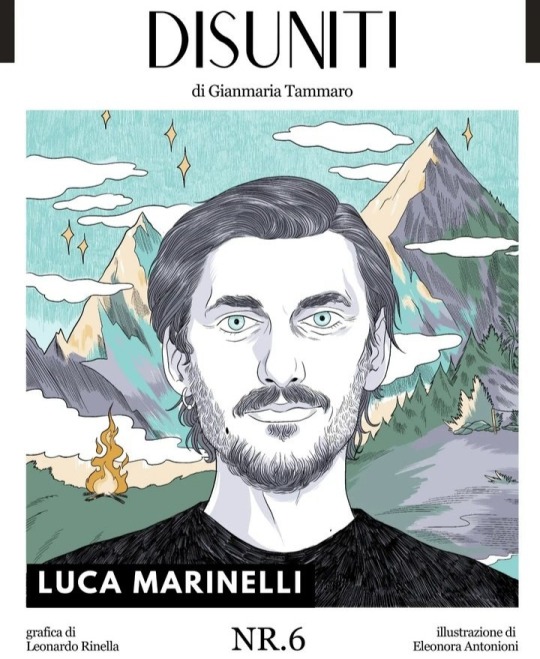
When choosing a role, Luca Marinelli lets himself be guided by instinct. He tries to listen to what his insides are telling him and to give a precise shape to his intentions. He doesn't move blindly; he moves slowly, with the same awareness of someone who knows his work, even instinctively. It's useful for him, he tells me, to stay in touch with the story, with what he tells. Because that way he can become part of it. A character, until the last stop is called, never leaves; it's like a second skin, and he's there, docile, waiting, ready to come out. Luca has a deep and low voice. These days, while he's filming M. Son of the Century, he has freshly shaved cheeks and a cap that is always pulled down on his head, to hide his hair and forehead. The smile and the look, however, are the same as always. Kind the former, intelligent the latter. When he speaks, he takes his knees in his hands, tries to collect himself, to compact himself into a single point. Not to limit the occupied space: but to find a center. We are in a park, in the late afternoon light, and a light wind is blowing. It had been a long time, Luca confesses to me, that he hadn't spent such a long period in Rome. In 2012 he moved to Berlin, and since then he has returned to Italy only for work reasons. "I've been in town since last spring, I think."
When you filmed the sequel of The Old Guard.
"Yes, exactly. And now I'm working on this series".
How did you find Rome?
"It's a question that, I confess, I don't quite know how to answer. I found Rome wonderful as always. And at the same time I felt tired. It's a beautiful city, and every time I have the opportunity to discover it more. Especially when I ride. And then I must tell you that I found her changed. Some neighborhoods aren't as I remembered them anymore, and that's okay: that's what happens to everyone, I guess; let's change".
When you will be finished shooting M., will you go back to Berlin?
"Yes".
Why? Do you prefer it?
"But no, it's not a question of preferring one city to another. Also in Berlin there is a fundamental part of my heart and a different dimension of life, just as important".
And does this diversity matter?
"Right now I feel like I have two houses, and it's nice. I feel at home both here and in Berlin. It took some time to reach this balance, I won't hide it from you. But now I'm really fine. Berlin is another dimension; it's not Germany. Berlin is Berlin, it's almost a place apart. I love his tranquility and his energy. When I'm in Rome, I feel a different kind of energy".
Tell me.
"There is a need to give oneself fully, to give oneself completely, when one plays a part or does something; but there is also a need to know how to withdraw in order to find one's own space. It's used to recharge. To fill again this container that is within us. Because when you work, you give everything. Everything is given. And you can come out of an experience exhausted. I say always that I don't get tired. But at some point, willy-nilly, fatigue still comes. Anyone who plays football has ninety minutes in his legs, he trains for that. When he goes too far, he risks overdoing it. So yes: it's important to stop and do something else, just to enrich yourself before the next project".
I imagine the type of preparation also changes
"Each project is completely different from the other: from the one that preceded it, and from the one that will follow it. The dynamics are the same, yes, because the set works, more or less, in the same way. But every experience is a different experience. And the city in which it's filmed has nothing to do with it; it's not just geography. There is more: much, much more".
What is your method as an actor? Indeed, I take a step back: you have your method?
"I don't know. So, instinctively, I'd say no, I don't have it. Which doesn't exist. I've always had pretty much the same approach; and I modified this approach depending on the project and individual experience. Sometimes, over the years, I felt that I didn't do what I wanted to do in exactly the way I had imagined it; and then later, subsequently, I tried to improve. Keeping in touch with the reality of what we tell is something that helps me a lot".
Why?
"I can't tell you. I could foolishly answer you: "because I'm close to the story". But actually I think it's something else. It's like there's a smarter part inside of me. And it's this part that intervenes at a certain point, that understands what to do and that guides me".
Maybe it's instinct.
"I don't know. I tend not to ask. I tend not to compliment myself, or even see myself in a totally positive way. I'm not saying this out of false modesty or because I love to despair, no. I feel this is my approach: I need training, closeness to the thing we have to tell; and sometimes this closeness must also be on a physical level. Only later do I venture further in the project".
Why did you decide to play Mussolini?
"Well, I can't talk about that. Not at all. Let's take up this question again at another time."
Sure. Alessandro Borghi told me that you are like two brothers, that he's happy if you are happy. How would you describe your relationship?
“In a very similar way. I'm happy too if he's happy. I'm fortunate to have a group of very close friends: people I consider brothers and sisters and who, in some cases, I have known for more than thirty years. And Alessandro is part of this group. Every time we've worked together, we've talked about friendship. A friendship, precise, very strong. And next time too, the third time, we'll talk about a friendship: I'm sure of it. Indeed, I hope so. We meet again years later, with a greater awareness and maturity, because in the meantime we have grown up, and we face the same theme again: it's a wonderful thing".
Alessandro also told me that you are very different.
"It's true, we are. But that's also, I think, the beauty of friendship. Being different and still being able to find each other and be together".
Are you a rational or instinctive person?
“If Alissa heard you, she'd laugh…Look, I don't know. I don't think rational. In my head, I tend to get into a lot of trouble. If we talk about a project, I give weight to the first sensation I feel in this area here, from the neck down. And I have to say I have never been disappointed. Sometimes an immediate, definitive sensation came. Other times, however, I convinced myself and I totally trusted others".
Has this trust ever been betrayed?
"From a film, you mean?"
From a film, a director or a fellow actor.
"No. Never betrayed. A project always has its own direction, and you must learn to follow that direction. Obviously, then, you too give it colors and a part of yourself. Bet on falling in love with someone else, and eventually you too fall in love. You rely on a director, you know a group of people who act with you. But if you get used to giving so much, you start to feel the urge to risk even more with something of your own".
So would you like to direct a film?
"In general, not just at the cinema. Writing or directing, yes. I think about it every now and then. And in effect, a theater project already exists in the near future".
Does the anxiety of the set, of a new project, pass after a while?
"At some point yes, it passes. But I always see it that way. There are projects where it takes me less time and others where it takes me longer to ignore this anxiety. Or maybe it's not like that: because you always stay in character. It can happen that you completely abandon yourself to one thing before, turning off your brain. Or it may happen to succeed later. It's essential to trust yourself, and I say this first of all to myself. At the Academy I had a great teacher, Paolo Giuranna, who said: "trust the work you've done up to now; when you enter the scene, it's a blank page"".
How important was the Academy experience to you?
"Very. They have been three full and intense years. At the beginning I had a different vision of this profession, and then, being with others, with my class, I managed to find a more concrete dimension for what I had in mind. I remember the fire of that period, the passion. It's still there, sure. But now it needs to be fed. Before, however, it burned almost by itself. Instantly".
In some ways, you're talking about what it's like to be young.
"Yes, but also of not having experienced first-hand what it means to do this job. There is a substantial difference between working out and starting to play sports seriously. When you play sports, you understand that you have to deal not only with what you have learned but also with many other factors".
What relationship do you have with time?
"I don't want to say trivial things... But time passes, and it also passes with a fair ease. It doesn't wait for you. He's not watching you. It would be nice to be able to live each day as if it was a lifetime. As if it was extremely important. To quote Thoreau: "As if one could kill time without hurting eternity." For heaven's sake: I spend whole days sitting, doing nothing, because mi pesa il culo (I'm a lazy ass)... (laughs, ed). But even that helps: do nothing, look around and don't box yourself in a phone. To stay. Simply. Throwing away some time makes me appreciate its value".
Even boredom has a purpose, in short.
“Boredom is interesting. It's curious. I get bored a little because I always try to do something - even here, perhaps, my wife would laugh. But I try, and I really try, to do something. Since adolescence, when I don't know what to do, I go out and about. When I read The Walk, I found this wonderful idea of walking and learning to see what the world has to offer."
What is your relationship with Alissa?
"She's the person with whom I would like to share so much of this time, and I'm sorry when I can't: when I'm not enough with her and with our children. If I put time near her, to them, if I use them as a parameter of judgment, I wish I had more and more. It's never enough for me. I love sharing."
What are you afraid of now?
"Fear is a strange word; a word that after meeting Claudio Caligari I tried to use less and less. I usually replace it with concern. Fear is something that makes you stop, and I learned from Claudio that it doesn't make much sense. You always have to keep fear at bay."
What worries you, then?
"Maybe just the passing of time, because it holds together an infinity of speeches and aspects. I worry about not giving due importance to individual moments".
How do you experience success? I mean: what follows you is an extremely passionate audience. What kind of bond unites you with the viewers?
“This thing you're telling me excites me. As you know, I don't use social media. So I don't have a clear view of what's going on. And knowing that makes me happy. Above all, it makes me happy to be able to give something back to others and excite them. If I'm shy, it's because I've always been shy. Social media can be useful. They connect many people with little; think of all the protests that exist today and that start right from social networks. Being able to share a testimony with the whole world is important. But I can't do it: said exactly like that, in the Roman way. I can't use them. I get excited when I meet people: when they ask me a question, they tell me what they thought about a film. They are crazy moments, that shake you. It's what, at times, drives me to give more, to commit myself to the maximum".
You mentioned Claudio Caligari earlier. What other encounters in your career have influenced you so much?
"The meeting with Carlo Cecchi was very important, whom I met again, with my great pleasure, also on the set of Martin Eden: master in life and work. When I have a professional concern, I always want to call him. Sometimes I had, and he answered me with passion and sincerity. During the period of the Academy there were several important meetings, like the one with Anna Marchesini. In recent years, I have met many directors, actresses and actors with whom I have shared the set. And then, even if it sounds silly, there was the meeting with myself".
In what sense?
"Several times, over time, I felt the need to stop and refocus, to understand who I was and what I wanted. And so yes, I ended up meeting the many people I've been and who still live here; and I learned to know them all, more or less. This is also important: understanding where we are and how we got there. When I had dialogues with myself, I changed direction or went on, on the path I had taken".
If you could go back in time and give you one piece of advice - before you entered the Academy; when the fire was still alive, and burning on its own - what advice would you give yourself?
"Go calmly. Listen. And listen to yourself. Have fun; have more fun. Smile. Enjoy everything; trust yourself".
I ask you the last question. Who is the actor?
"...what?"
Who is the actor?
"Someone who, trivially, feels he wants to communicate something, and communicates it. Someone who enacts a thought they've had or an emotion they've felt. Someone who is aware, hopefully, of all the possible consequences."
Like always, sorry for my English
#luca marinelli#tog cast#the old guard cast#magazine#rivista#intervista#interview#eng translation#english translation#mine
176 notes
·
View notes
Text
Does anyone know where I can read IDOLiSH7 part6 of the main story?
Fortunately I found @/sevenboarproduction blog but it's only translated up to chapter 6.6
7 notes
·
View notes
Text
LEECH TWINS BDAY MOMENTS TRANSLATION!
Check it out !! 🌊🐚
youtube
youtube
33 notes
·
View notes
Photo






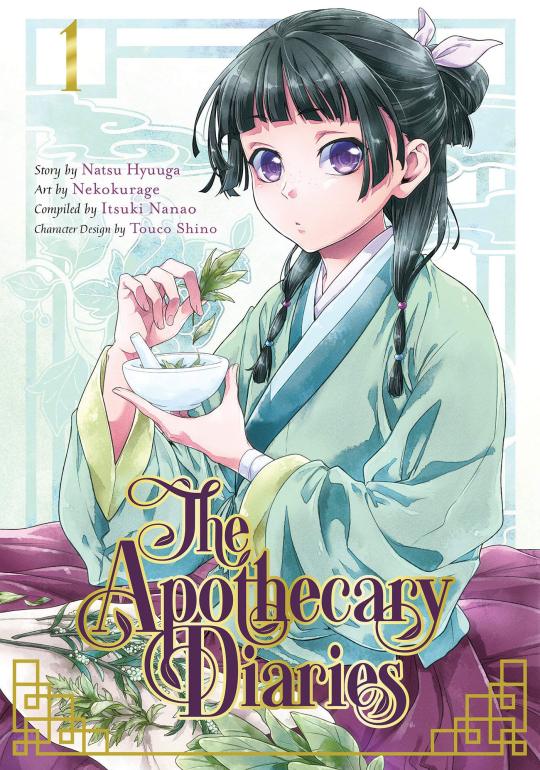


Books Read in 2023:
I Want to be a Wall Vol. 2 by Honami Shirono (2023)
The Villainess is a Marionette (Season 1) by Han Yi Min & Manggle (2021)
Delicious in Dungeon Vol. 1 by Ryoko Kui (2017)
Delicious in Dungeon Vol. 2 by Ryoko Kui (2017)
Frieren: Beyond Journey’s End Vol. 1 by Kanehito Yamada & Tsukasa Abe (2020)
Frieren: Beyond Journey’s End Vol. 2 by Kanehito Yamada & Tsukasa Abe (2020)
The Apothecary Diaries Vol. 1 by Natsu Hyūga, Itsuki Nanao & Nekokurage (2017)
The Apothecary Diaries Vol. 2 by Natsu Hyūga, Itsuki Nanao & Nekokurage (2018)
The Apothecary Diaries Vol. 3 by Natsu Hyūga, Itsuki Nanao & Nekokurage (2018)
[ID: Covers of the above books. End ID.]
#gigi.txt#i want to be a wall 2 was good continuation! i liked the further exploration of them#its just a nice manga and i love the relationship between the main two. good friends#villainess is a marionette is quite fun i started reading it bc i saw the novel had an official#eng translation#i just really enjoy the mindless villainess isekais lmao#loving loving loving dungeon meshi#i understand why everyone goes nuts over it lmao#frieren is so good and sad and just#god the first chapter had me bawling already#i love her and i love the quiet reflection and the passage of time and yet#i also love it when they get to murder shit. duality of man.#i just started apothecary diaries yesterday and have already read three volumes so ig that speaks for its quality#maomao is captivating as an mc she is insanely talented and i love jinshi the other main#10/10 and all the characters are very interesting and fun#2023media
11 notes
·
View notes
Text
Please English translations for Talk Me Down what happpennned it’s all released, can someone take it on? Why hasn’t it been fully released anywheree liek why 13 chapters n that’s it whaaa
Some call it I want to fall asleep next to you, or the original title is 네 곁에 잠들고 싶어


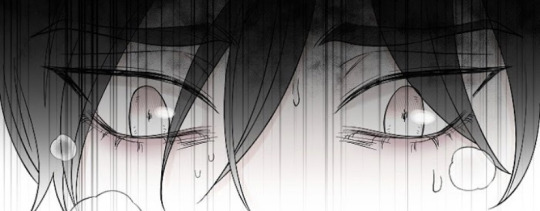

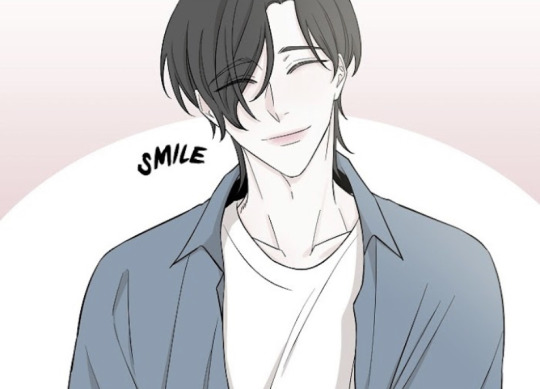
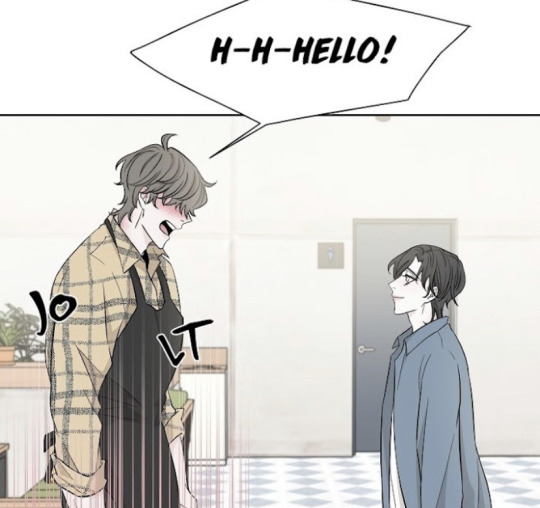
#talk me down#I want to fall asleep next to you#네 곁에 잠들고 싶어#english translation#manga translation#manga translator#manhwa#korean manhwa#bl manhwa#manga cap#mangacap#manhwa bl#manhwa cap#manga#eng translation#mangadaily#manga discussion
1 note
·
View note
Text
~Mini update - I'm back at it again
Aaaaaand I'm officially on vacation!!!
After thinking about this for a while, I'm gonna be reviewing what I have done and then continue the Eng translation in early February.
So like I said before, I'm thinking of streaming thru discord as I do the translation to interact more with you, and since I also need more beta readers to feel comfortable before publishing this book, I've decided to mix both ideas into one.
Thus, the server will be private for beta readers, and the streams will serve as writing sessions to check the writing, and more importantly the grammar and punctuation in the translation.
At the end of the translation, beta readers will get a copy of the book to review it as a whole, and after they're done with their notes on it, their names will be added in the Thank you section of the book.
I can't offer you money for your work, but if you do decide to do beta reading, I can offer this:
Beta reading for you for free for one of your wips (short stories or standalone novel)
Help you with reviewing a Spanish translation if you have one.
Boosting your wips here on Tumblr with reblogs and so.
If you're interested in being a beta reader and help with the translation of my standalone, urban-fantasy, suspense novel about a duo of teacher and student, please send me a DM about it and I'll send you an invite for the server once February starts!!
Also, consider checking out the wip intro for this.
TMOWS taglist +/-: @mel-writes-with-her-dragons @gabelish
#writeblr#writing#writers#writers stuff#writing stuff#my wip#tmows#beta reader#eng translation#english translation
1 note
·
View note
Note
Hello! Would it be alright to ask you to remove the unofficial “translations” of the vnc extras in the vnc omake folder? I’m not sure how to say this without coming off as rude (that’s not my intention) but they are HEAVILY incorrect (and I don’t mean grammar mistakes or anything like that. I really just mean the translations are wrong).
Hello!
I'm actually glad you asked, because I was already thinking about it. I barely read the translated version (I prefer the original both for manga and omakes), but I got quite a few requests for translations so I thought of including those even tho I haven't checked them myself (my bad, I should have!).
I'll probably go ahead and remove all the ones I have in Japanese as well, but please everyone let me know what you'd like me to do with them 🙏
#Mochizuki Archive#echo answers#jun mochizuki#vanitas no carte#vnc#the case study of vanitas#vanitas no carte omake#omake#eng translation
4 notes
·
View notes
Text
Eng translation of my favourite song right now
De kommer alditg va över för mig - Håkan Helström
I am 16 years old
I am the place they never discovered
I am the storm that comes ute of nowhere
I can brake your heart
Like a hurricane I can sweep you away
But I don’t think I am going to die now, no
It will never be over for me
I will love you when the earth ends
Because I think I am never going to die, no
It will never be over for me
I am 24
Just a little spark
Just a world can start a forest on fire
I can love you just like that fire
No, I don’t think I’m going to die, no
It will never be over for me
I can burn you like you never did yourself
If you play whit me
It will never be over for me
I am 39
I am a loss of confidence
A boy from the bast is back agen
He just stands there and stares straight into my soul
We would love each outer until the world ends
We would love each other until the world ended
And you were never supposed to die, no
It would never be over for you
I will love you until the world ends
Becos I’m never going to die, no
It will never be over for me
1 note
·
View note
Text

in another life, I would have really liked just doing laundry and taxes with you
#chinoy tim you are so special to me#also additional context sasha doesnt speak chinese for the purposes of this drawing#a little secret confession if you will#art#tma#the magnus archives#tim stoker#timothy stoker#sasha james#this isnt a direct translation the og is more like “would still really want to” but the caption is the eng sub version
4K notes
·
View notes
Text
[Single] Hwang Chiyeul (황치열) - May you be happy (그대는 행복하길)
황치열 – 그대는 행복하길 (낮에 뜨는 달 X 황치열)Release Date: 2021.11.08Genre: BalladLanguage: Korean
Track List:01. 그대는 행복하길Download .lrc file here:Link 1

View On WordPress
#eng lyrics#eng translation#따뜻한 노래#발라드#그대는 행복하길 (낮에 뜨는 달 x 황치열)#hwang chi yeol#hwang chi yeul#툰스튜디오#황치열#k-pop#korean#kpop#kpop lrc#kpop lyrics#kpop ost lrc#kpop songs#lrc#lyrics#music#romanized lyrics#the moon that rises in the day
0 notes
Text
The eroticism of friendship and the strength of the mountain
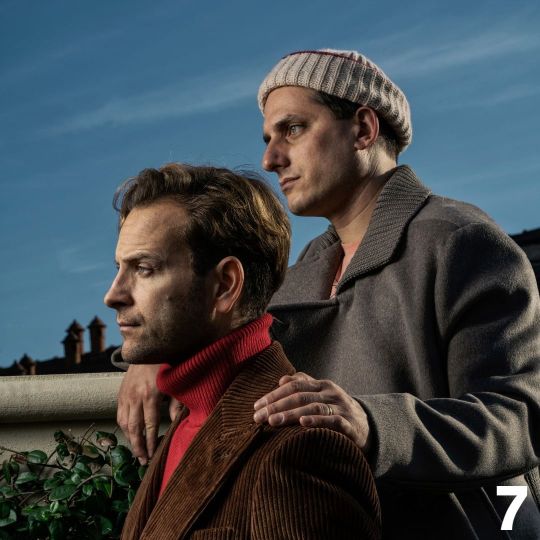
The two actors and the writer Paolo Cognetti tell what they learned from the mountaineers during the making of the film "Le otto montagne". A great test of acting, authenticity and humility: «Up there the ego is resized»
The film 'Le otto montagne' is an excursion of rare visual and emotional intensity. A must for those who loved Paolo Cognetti's novel from which it's based, for those who love mountain life in general, and for those who know nothing about it, but know what a true friendship is, its adventurous mystery. The story, brought to the big screen by Felix van Groeningen and Charlotte Vandermeersch, is a double love story: for the mountains and for friendship. To guide us, the actors Luca Marinelli and Alessandro Borghi, in the role of Pietro, the citizen, and Bruno, the mountaineer. Cognetti was their guide in the summer of 2021, when he hosted them in the refuge in the Aosta Valley where he wrote and set a large part of the novel (a refuge that he bought with the profits from the book). The friendship of the two resonated with the mountain and its singer.
«I had two fears about the film», confesses Cognetti connected via Zoom with Marinelli and Borghi «related to inauthenticity: that the story was taken elsewhere. There was talk of America, of the Rocky Mountains, where, however, there is no mountain pasture culture, which is central to the story. And then the two friends, the heart of the film, had to be real. It was important that the mountain was real and that the two friends were real». The setting has not been distorted, also because the Belgian directors were conquered by the beauty and seasonal cyclicality of the Aosta Valley, functional to show a friendship that resists distance in time, as well as in space. True the mountain, true friendship. Marinelli and Borghi were chosen not only for the sum of their talent, but for their experience. They met on the set of 'Non Essere Cattivo' by Claudio Caligari, filmed in 2015, then they never worked together again, although they remained friends. «Their meeting again, on the set, after a common past and a distance is what happens to Bruno and Pietro».
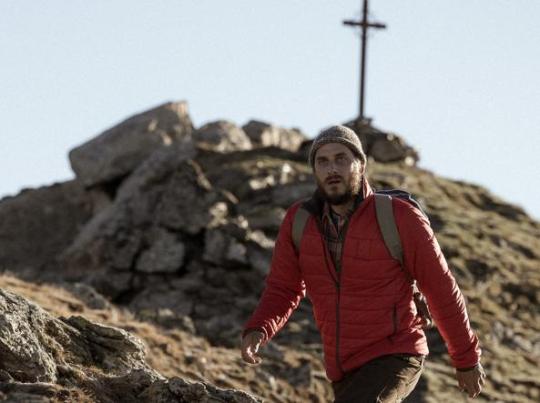
The two actors auditioned for both roles, but for Cognetti and the directors there were no doubts as to who should play the brighter role, full of energy and vitality and projects (i.e. Bruno, the mountaineer, played by Borghi), and who, on the other hand, is the shyer one, to be pulled out (ie Pietro, the citizen, or Marinelli). If for Marinelli love is the common root «of the billions of friendships in the world», for Borghi the fulcrum is diversity: «The most beautiful moments in the film for me are those in which the two friends recognize their differences and accept them, it's something that I also find a lot in my life, diversity nourishes the love for the woman with whom I have the good fortune to live with and all my friends, even Luca». Thus, with their different physical and emotional masses, and a familiarity due to real friendship, Marinelli and Borghi guaranteed that corporeity which in the novel is a vast front, a contact surface between the world of the city and the mountains.
«In the city» recalls Cognetti, who lives between Milan and the Alps «we are used to shaking hands, embracing, kissing. In the mountains it's a problem. My friends up there are often embarrassed to even shake your hand. Once a very dear friend told me: "You touch a little too much". He hurt me. In the novel, corporeality is important because the two friends find it hard to talk, in the mountains there is little talk and where words fail, bodies arrive, there is almost an eroticism in the friendship of Pietro and Bruno, who played together as children, they rolled around in the grass, they wrestled, they bathed. For me it was important that the two actors already had this eroticism, and they have it».
Eroticism in friendship. One can slip into the simplification of fluidity, but Borghi, connected from his Roman house, wearing a red dressing gown (Cognetti is in front of the bookcases of the Milan house and Marinelli has two abstract paintings behind him), shares a childhood anecdote with chaste eloquence: «As a child, when I had to leave the campsite and we had to dismantle the tent, I ran away from the pitch and went to kiss everyone to greet them and my mother scolded me: "It's not normal love that you go to all the people, unknown, to greet them with a kiss". But for me it was essential to show that I was happy to have been there and I wanted to thank them for the days together. Yes, I am an extremely physical person, the erotic side of a friendship is always present, I often happen to confuse love and friendship, I can't always understand when one begins and the other ends".
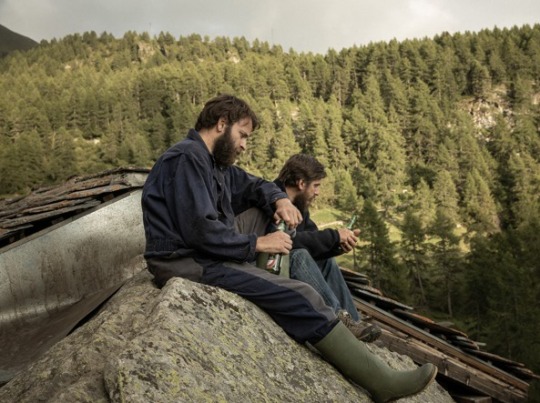
Marinelli reciprocates: «When we see each other, sometimes instead of asking "how are you", we understand each other from an embrace, we rest our heads on our shoulders and something passes, like in the last embrace between Pietro and Bruno, we sink into each other. It happens often between me and Alessandro too. I think I also passed this on to my character, surely the friendship between us was an important starting point». However, there was a catch: that the friendship between the two actors turned from a resource into a burden: this was not the case. Pietro and Bruno are not Luca and Alessandro. «For me, yes», protests Cognetti candidly, confessing himself unable to distinguish between reality and fiction, autobiography and fantasy, friends of yesterday and today, people who inspired the characters and actors they play. "I'm not joking, I've seen the film about twenty times, first it was more than three hours long, then every time a scene was cut and for me it was as if they cut off a piece of my body". Sadism? No, nostalgia. Of course, it is a bit sadistic: «I watch the film because I miss everything, I miss them, it's like having in your phone not only photos and videos of a beautiful thing, but an entire film».
Rewinding the tape of memories, off-screen episodes appear. Like the first meeting between Cognetti and Marinelli, recounted by the writer: «Luca arrived months before the start of filming, it was April, there was no one there that day, I was agitated, I did the cleaning, there was snow and we went for a walk. I remember that Laki, my dog, who is not as kind as me, stamped the ear of Mino, the little dog that Luca had brought with him. A nice menacing bite, to make clear how things are in the mountains. Then we went back, I have a guitar, he can play and sing very well and so the music, especially by Bon Iver, filled the typical silences of the shy. Luca also helped me set up the lights in the refuge, but the greatest satisfaction, after those months, was seeing how he changed his way of walking, when he dances on stony ground or when he climbs the mountains of Nepal, you can tell he knows how to do that".
For Marinelli, the mountains have a simple but strict rule: «To be on the high seas you must be sailors, to be in the mountains you must be mountaineers. When I went with Paolo we made wonderful laps, if I went alone with my dog I covered 500 meters and then came back. But walking with Paolo means putting yourself on the line, it's not a walk, it's an adventure» (Borghi intervenes with affectionate irony «Paolo the ibex»). Marinelli continues: "When we shot the scenes in Nepal, walking for a long time to reach the locations, I thought about Michael Ende's book Momo, where there's a street sweeper (Beppo) who says he doesn't think about the road all at once, but see it piece by piece. Of those walks from a certain point on, I remember the heels of the guide in front of me and I followed him as if I were a little donkey. Don't look at the top, but at the little piece in front of you, and this trust in the other are two very beautiful things».
For Borghi, who had been going to the mountains for a few years but always in the summer and never in the Aosta Valley, the pasture was a mystical discovery. Thanks to a week spent at an altitude of 2,300 meters with a young shepherd, Esteban, to learn how to milk and make cheese. “He has huge, gorilla-like hands and a heart of gold. Age, unknown. He said he was 18, but he was a man disguised as a boy, because mountain people are of an age you can't understand. We woke up at 4 in the morning, first milking, then we went to the pasture and there we had to learn to recognize the simplest cows and the most complicated ones... my favorite, which I also milk in the film, is Dorina, I fell in love with her. She had a severed tail from a dog's bite, they couldn't tie her tail up and so I found her excrement smeared on my face, and I didn't say anything so as not to look unable. After seeing Esteban's face, I knew I could complain without ruining my reputation. The reputation. But the beauty of the mountain, its essence, frees you from superstructures, from fear of being judged by others».
The ego, thus, develops a healthier need for the other. «You are in a place that makes you feel small» concludes Borghi «the mountain puts you back in your place. Every time Luca and I were looking out over the refuge, at sunset or sunrise, with or without snow, we felt nothing compared to what we were looking at. So it's natural for you to take refuge in the affection of the other. You look ahead, you see infinity, you feel small, then you look to the left, there is Luca, to the right there is Paolo, and you are safe again. This is the secret of the mountain and the need to be together». Before saying goodbye, Cognetti recalls the day in which he introduced the two actors to his two mountain friends: «Remigio and Gabriele, whom I met when I was 30, were the embodiment of the imagination that I had as a child when I went alone during summer in the mountains. I was inspired by them for Bruno, whose name I took from a neighbor at school». On the first day together, with Luca and Alessandro, they performed a psychomagic ritual: «Remigio took us to slide on the snow, then, all wet, we went to Gabriele's hut to drink hot wine or coffee. I saw in the eyes of Luca and Alessandro how wonderful everything was, we were already inside the film before it started and that world was real. I looked at all this like a child to whom life has given a gift, I saw everyone together, Gabri and Remigio, Luca and Alessandro, I smiled and took pictures, it was happiness».
Cr: 7Corriere
Like usual, sorry for my English
#tog cast#luca marinelli#the old guard cast#alessandro borghi#paolo cognetti#le otto montagne#the eight mountains#interview#intervista#english translation#mine#english#eng translation
269 notes
·
View notes
Text


DUNGEON MESHI MY BELOVED, OH, THAT DND MANGA, DELICIOUS IN DUNGEON, DUNGEON IN DELICIOUS, DELICIOUS IS DRAGON, DRAGON IN DELICIOUS, DYIN' IN DUNGEON,
these sticker sheets are here in my shop until oct 17! shop will reopen next spring/summer
#dungeon meshi#laios#marcille#laius#chilchuk#kabru#farlyn#izutsumi#senshi#marcille donato#laios touden#chilchuck tims#senshi of izganda#falin touden#sissel#thistle#idk which names are more popular in the fandom - the official eng translations or the fan spellings everyone's been using before that#and idk if tumblr still does the 'only first 5 tags show up' thing or that was just a rumour from my youth WAHAHAHA....#my art#my favourite sticker is the one with the dungeon rabbit and it just says murder#the colours turned out so nice and my shitty photo honestly doesnt do it justice#double posting today bc why not#i like how tumblr doesnt have an algorithm. i can post as much or as little as i want and people are so nice and patient here#meanwhile on insta i feel like the climate is unforgiving. like if i post. ppl are reminded of my existence and then 5 ppl unfollow HAHA
2K notes
·
View notes
Text
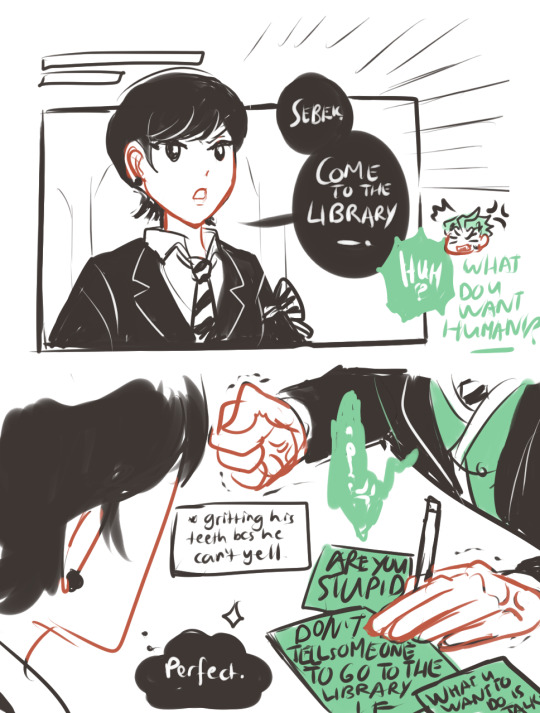
sebek proof plan


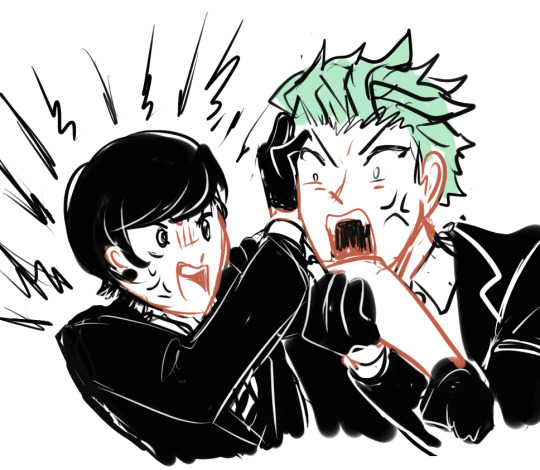
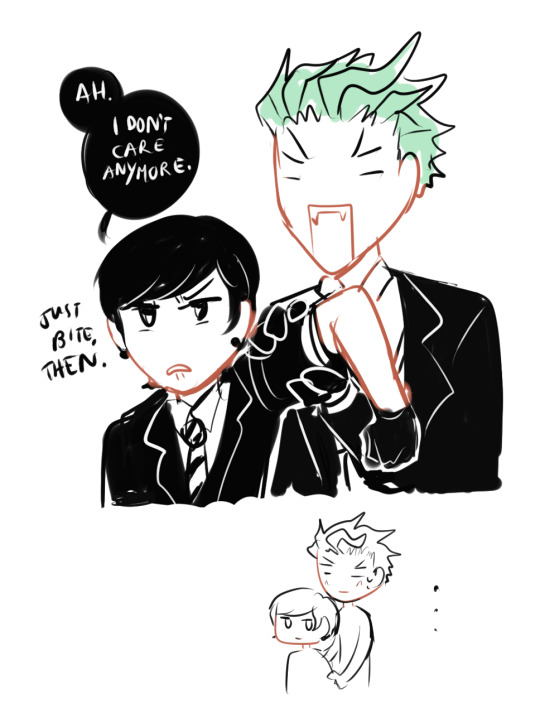
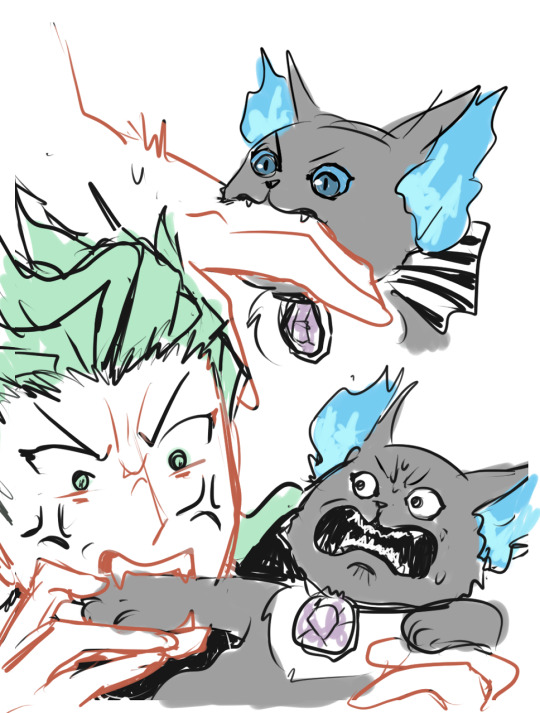
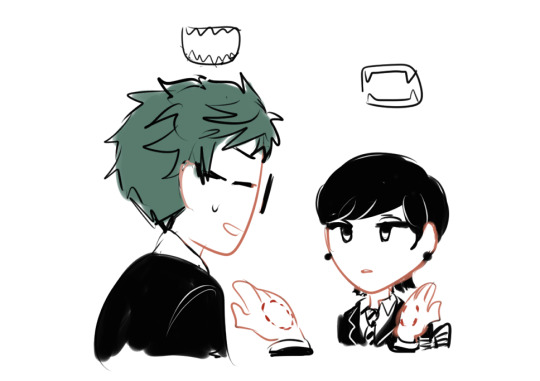
( ´ཀ` )
#twisted wonderland#twst#sebek zigvolt#twst grim#twst yuu#twst mc#trey clover#fanart#when the eng translation said sebek can drink his milk with a splash of coffee it makes me laugh#so it's not coffee with milk#but milk with 'a splash' of coffee#what's cute is that he said my milk#not just milk#i can drink my milk with a splash of coffee#also sebek does snack on sweets from bloom birthday translation
1K notes
·
View notes
Text
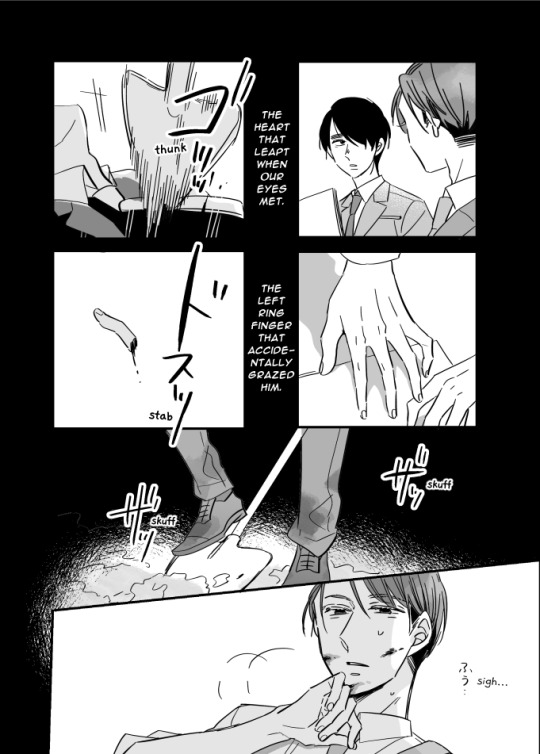
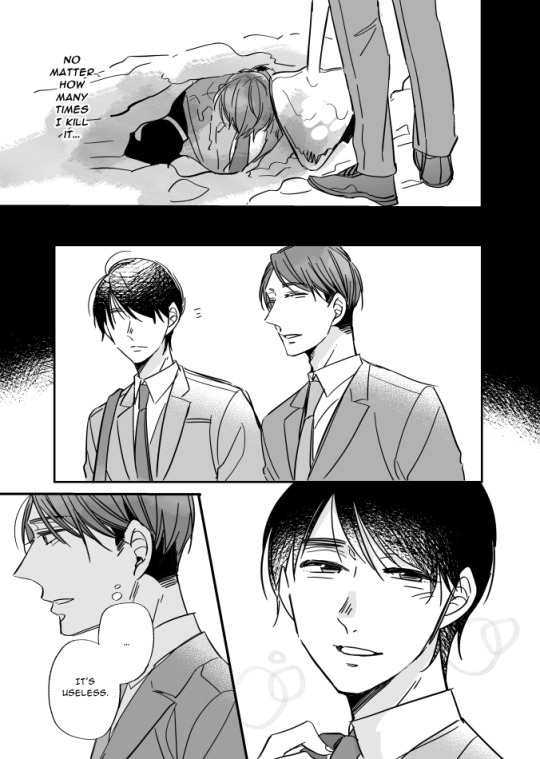
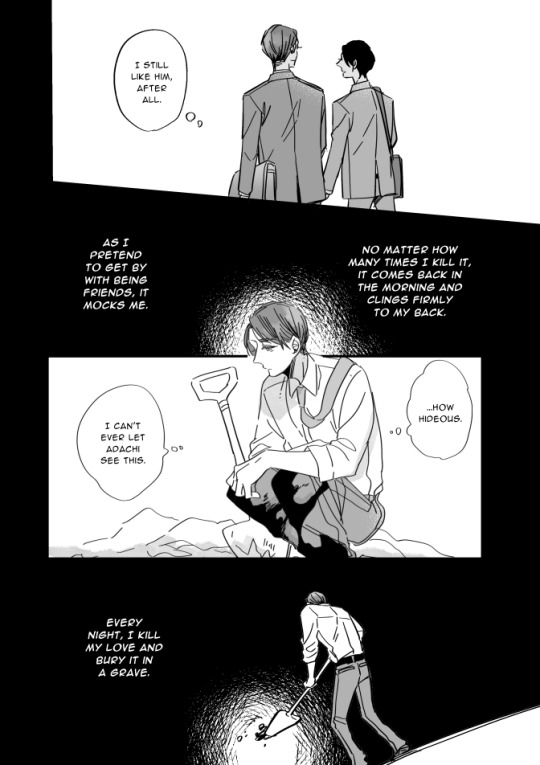

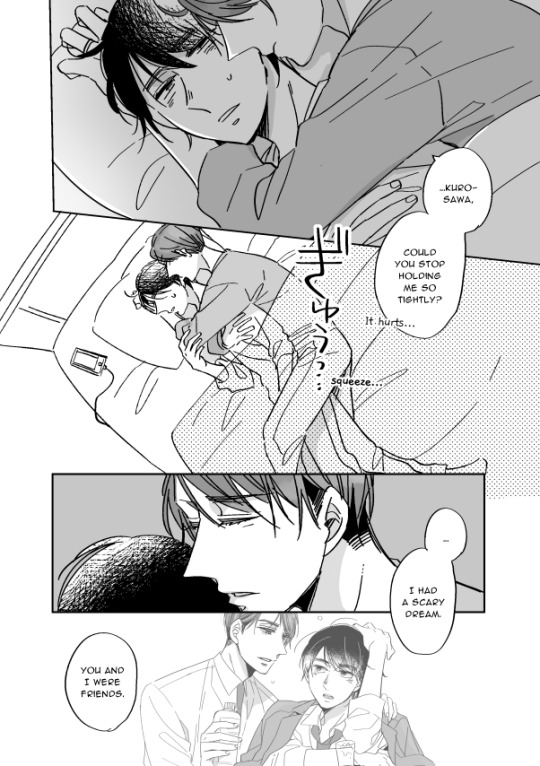
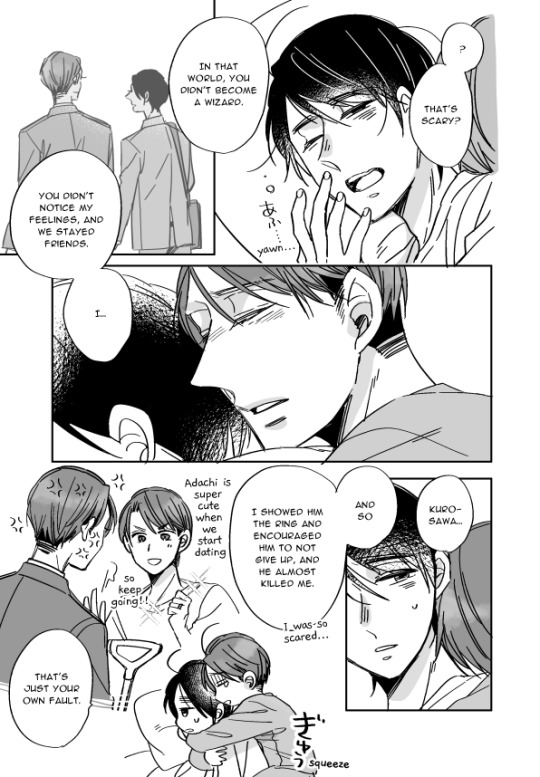
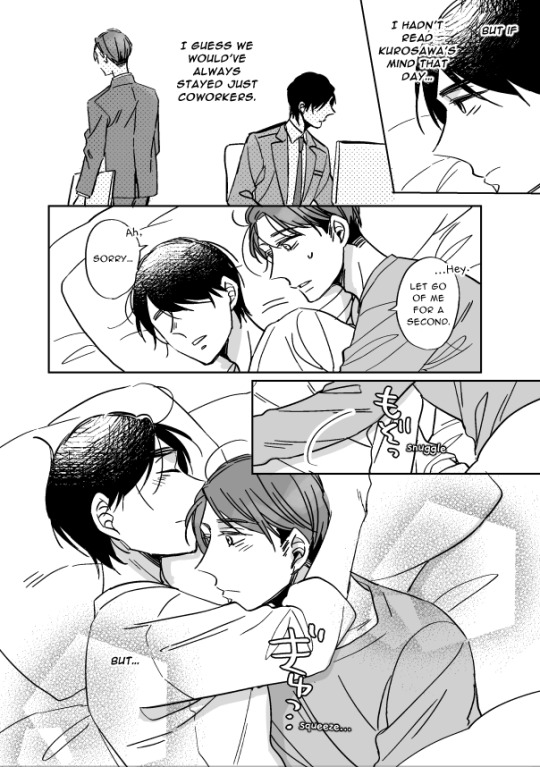
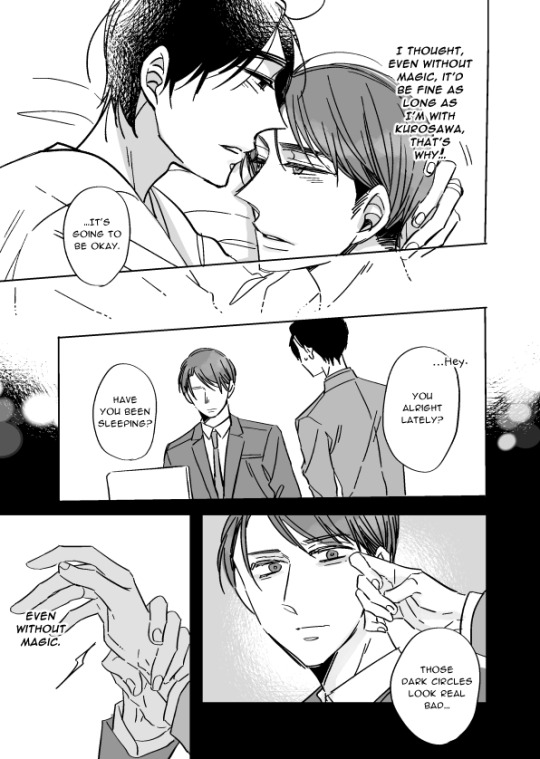
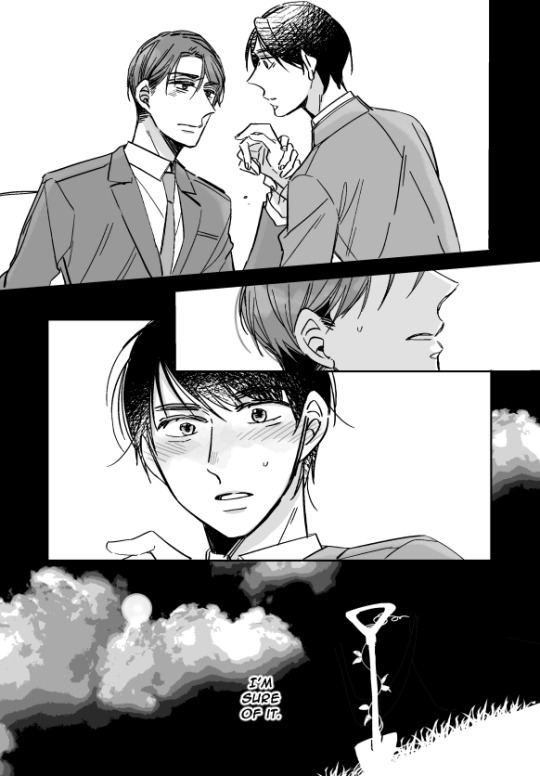
「安達が魔法使いにならなかった世界線の話」 + 「もしもの話」 — english translation
#cherry magic#my translation#here it is....... the cm if story that started it all................#i read this when there were like 3 vols of the manga out in eng and literally my first thought was ''what the FUCK happens in this manga''#(that and i saw snippets of Those Bits from vol7 so i had a very confusing idea abt the manga at the time kjkfdjg)#anyway this comic makes me so wild and it hit me that ppl might not have seen it so . here u go#as usual theres definitely mistakes pls send corrections if u have any thamk u and enjoy#i swear i saw fanart of this au before.......i gotta find it again
1K notes
·
View notes
Photo

meet me in a dream
#*opens the door literally one day after book 7 update* hey fuckers im back#yes i vanish to do jobs and zines between updates but gods damndndmn my guy....my guy has some special magic guys#shoutout to dovey for concept brainstorm. theyre the realest. i am fuckgn SOB Bing. this guy knew immediately it was wrong#the way his spell is so DIAMETRICALLY the opposite of malleus's. IT IS. DESTINY. ITS DESTINY ITS FATE IM GRIPPING UR SHOULDERS AND SCREAMIGN#U CANT CONVINCE ME ITS NOT. im goinag sob when cel and i get to watch the eng translation whenever tf it comes out. gasmask cmon#twst#twst spoilers#twisted wonderland#twst silver#silver vanrouge#suntails#book 7 spoilers
1K notes
·
View notes